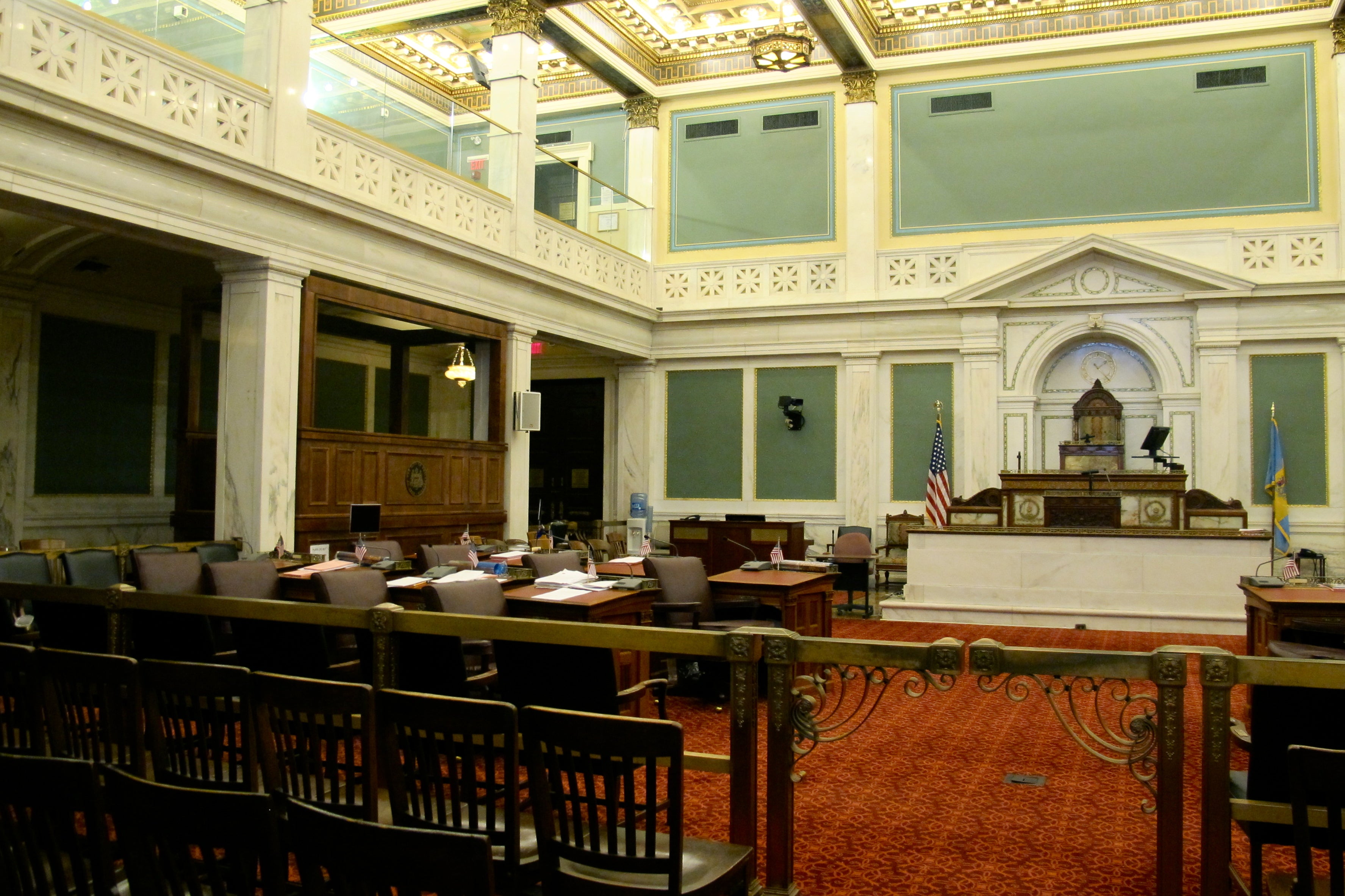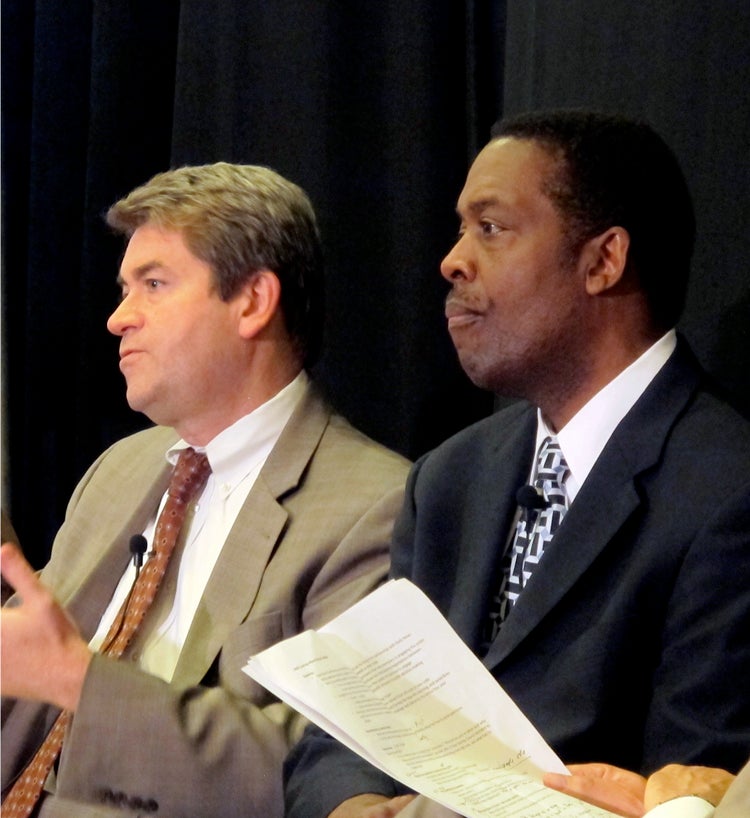Will zoning reform really shift City Council’s land use powers?

December 15 is a big day for the City of Philadelphia.
City Council should – fingers still crossed – pass a new zoning code. This moment is the culmination of four years of focused work by the Zoning Code Commission to rewrite the code that shapes the city’s physical change (building anything from roof decks to factories), and what types of uses are permitted and where.
But tomorrow’s City Council vote goes beyond the mechanics of zoning and development, it’s about a cultural shift in Philadelphia’s planning environment. Yes, the Nutter administration has given planning a better seat at the table, and selected capable individuals to lead the City Planning Commission and Zoning Code Commission. But is everyone on board?
The zoning reform process only gained momentum in 2007 when city voters approved a referendum to empower a commission to revise the outdated code. So we know that Philadelphia voters think the city’s development processes should change.
It’s been interesting to watch how City Council has engaged with the zoning reform process along the way. As an editorial in today’s Inquirer notes, “there was talk in Council that the process was moving too quickly.” There were times when I wondered if council members would support zoning reform or if they would subvert the process.
Patrick Kerkstra writes in The Philly Post today that Council’s approval of zoning reform is a rare selfless move that effectively reduces the power currently wielded by district council members because developers won’t need them as much anymore. He describes the dynamic this way: The Eisenhower-era code is so outdated that most meaningful modern developments aren’t permitted under the code, which means developers have to seek exceptions to the code, exceptions that have to be approved by City Council.
This creates all kinds of problems. For one, it encourages anyone with an interest in developing property to try and curry favor with council members and their staff, behavior that can cross the line pretty easily. In short, the dated zoning code couldn’t handle even minor developments, so everything went through community groups, council members, Licenses and Inspections, and the Zoning Board of Adjustment. This process fostered transactional, sometimes corrupt, negotiations between developers and council members.
To say nothing of the bad planning that came out of this, the process reeked and the product wasn’t consistent or fair. It was hold-your-nose and hope for the best. The new code is intended to provide everyone with a clearer, more predictable process that allows for more development as-of-right. That is to say fewer variances. And if there are fewer variances, developers need fewer favors from Council members. The dynamics should shift. To Kerkstra, either council members don’t understand how much the new code will change their development powers or if they do, then we’re actually witnessing effective government.

Compare this to Fifth District Councilman Darrell Clarke’s opinion piece in Monday’s Inquirer. Clarke is the presumptive next Council President, and he says City Council should control land use decisions.
Clarke’s opinion suggests he likes things just the way they are. He explains away councilmanic prerogative, justifying it on the grounds that because district Council members know their districts more intimately than their Council colleagues, that perspective should carry greater weight when it comes to land use decisions. Clarke writes: The prerogative is informal. It is not required by our Home Rule Charter or Council’s rules. It exists only because it works. And in return for the prerogative, Council expects the district Council member to negotiate on Council’s and the city’s behalf to improve the project, often dramatically.
Supporters of the project understand that without the Council member’s support, the project could stall. This brings them to the table. Compromises are reached; legitimate neighborhood concerns are resolved; flawed projects ripen into worthwhile ones; and good projects become superior ones. He points to two examples from his district, one of which is the important Gateway South project at Temple being built at the intersection of Broad and Cecil B. Moore. This is a significant mixed-use project comprised of student housing, dining and retail. It’s a big deal and helps answer one of Clarke’s complaints about the lack of student housing causing neighborhood tensions.
As part of the project’s approval, Clarke negotiated for neighborhood residents to receive preferential treatment when it comes to the opportunity to set up shop in the retail spaces or work on the construction project. But he also applauds the requirement that Temple provide 250 need-based scholarships to neighborhood students in exchange for permitting the development.
Now, to be clear: I’m not arguing with Temple’s duty as a citizen of North Philadelphia to provide opportunities for the young people growing up in its shadow. But zoning changes are inappropriate places to negotiate scholarships. If Clarke was so concerned, he should have worked with Temple separately, negotiating that point on its own merit. Otherwise it just looks like extortion.
Clarke is right about one thing: councilmanic prerogative should be exercised judiciously. Right now, it isn’t. And that should change as the number of projects requiring variances and councilmanic approval drops thanks to a cleaner, clearer zoning code. Not every development warrants councilmanic intervention.
A new zoning code does not take away City Council’s ability to pass whatever legislation it wants. It will modify the code, it will carve out exceptions, and it will hopefully resolve unforeseen problems. A new code will not change how City Council behaves.
But I think people’s investment in the current planning and zoning reform processes underway finds more of us watching the sausage being made. And if we see City Council members playing the same old transactional politics with developments in the days to come, let’s call it like it is.
WHYY is your source for fact-based, in-depth journalism and information. As a nonprofit organization, we rely on financial support from readers like you. Please give today.








